This article was co-authored by Laura Marusinec, MD. Dr. Marusinec is a board certified Pediatrician at the Children's Hospital of Wisconsin, where she is on the Clinical Practice Council. She received her M.D. from the Medical College of Wisconsin School of Medicine in 1995 and completed her residency at the Medical College of Wisconsin in Pediatrics in 1998. She is a member of the American Medical Writers Association and the Society for Pediatric Urgent Care.
There are 12 references cited in this article, which can be found at the bottom of the page.
wikiHow marks an article as reader-approved once it receives enough positive feedback. This article received 15 testimonials and 100% of readers who voted found it helpful, earning it our reader-approved status.
This article has been viewed 1,050,973 times.
When your child doesn’t feel well, you want to do everything in your power to help them feel better. Stomach aches are common and they may be caused by any number of reasons. By ruling out emergencies, comforting your child, and providing natural relief you can help ease your child’s discomfort.
Steps
Ruling Out Emergencies
-
1Know when to call a doctor. Sometimes, a stomach ache can be serious or a sign of a medical condition. Such conditions will usually cause your child to exhibit a range of symptoms.[1] Call the doctor immediately if your child has:
- Persistent pain on the right side of their abdomen (a symptom of appendicitis)
- Pain only in one specific part of the abdomen
- Severe or rapidly worsening pain
- Pain lasting for more than 24 hours
- Tenderness when you put pressure on their belly
- A swollen abdomen
- An abdomen that is hard or stiff to the touch
- Pain or swelling in the groin (including testicles)
- Pain during urination
- High fever
- Frequent vomiting or diarrhea; inability to keep water down
- Blood in the stool/vomit or rectal bleeding
- A recent injury to the abdomen
-
2Know when to call poison control. A stomach ache could be a result of consuming something poisonous, such as a chemical, medicine, cleaning product, or other dangerous substance. If your child has consumed (or you think they have consumed) a non-edible item or liquid, call your local poison control center. You can reach the American Association of Poison Control Centers at (800)222-1222.[2] Some signs that your child may have ingested poison include:
- Unexplained vomiting or diarrhea
- Chest pain
- Headache
- Blurred vision
- Unexplained stains on clothing
- Numbness
- Chills
- Fever
- Burns on lips, mouth, or skin
- Excessive drooling
- Bad breath
- Trouble breathing
Soothing Your Child
-
1Get their mind off of it. Stories, movies, and board games can be used to pass the time and help your child forget about their tummy ache. Do your best to have fun while you wait for the pain to pass.[3]
-
2Give your child a warm bath. Warm water help your child to relax, and help them feel better. Also, baths can be fun! Toss in some bubbles and bath toys to encourage them to forget the stomach ache for a while.[4]
-
3Ask them to drink water. If your child’s stomach ache is not an emergency, it may be as simple as slight dehydration. Offer your child some water and encourage them to drink. You may want to add a bit of fruit (such as watermelon or orange) to the water to make it taste better for them.[5]
-
4Feed your child bland foods. Bland white foods can help absorb any excess acid floating around in your child's tummy. A plain slice of whole wheat bread is an excellent choice, as well as dry crackers or plain rice.[6]
-
5Offer warm chicken broth. Chicken broth (especially broth made from real chicken bones) is a mild, nutritious, and easy-to-digest food. The warm liquid is also soothing. Especially if your child does not want to eat, try offering some chicken broth to help keep them nourished and hydrated.[7]
- If your child does not eat chicken, you can offer vegetable broth instead.
-
6Provide affection. Sometimes hugs and kisses are the best medicine! If your child feels loved and supported throughout the period of discomfort, they will be less likely to experience negative feelings. Provide plenty of affection and attention to keep them happy and calm.[8]
-
7Encourage your child to rest. Your child needs rest in order to recover and heal. They may want to press a pillow against their stomach. Snuggle together on the couch or lie down beside them and rub their tummy.[9]
- Ask your child to lie down on their side if it seems like they have gas.
Providing Natural Relief
-
1Offer papaya, ginger, or peppermint chews. Papaya, ginger, and peppermint are excellent for soothing upset tummies. Papaya, ginger, and peppermint chews are all available at health food stores. These items resemble candy and taste good, so your child is more likely to eat it.
- Always be sure to read the packaging to see how many chews your child can eat in a day. Be sure as well that your child is old enough to consume the chews safely.
-
2Make tea to soothe your child's stomach. Ginger and mint are also available in tea form. These warm beverages work quickly to ease stomach discomfort. Make your child a cup of warm mint or ginger tea. You may add a bit of honey if it helps them to enjoy it.
- Avoid adding white sugar to the tea, as this may aggravate the child’s stomach.
- Don’t add honey if the child is under 2 years old, either. Since infants and toddlers don’t have the right digestive organisms, honey can cause a dangerous illness called infant botulism.[10]
-
3Try giving your child gripe water. Gripe water is a product sold to relieve colic and other tummy troubles in infants, but it can be helpful for older kids too. The main ingredient is fennel oil, which can help ease gas, bloating, or upset stomach. Try to avoid gripe water varieties that contain sweetener (sucrose) or alcohol.[11]
-
4Place a heating pad on your child's stomach. Warmth can encourage your child’s stomach muscles to relax, helping to ease the discomfort. Use a traditional heating pad (on low), or warm a cloth in the microwave.[12]
-
5Massage your child's tummy. With soft hands, rub circles around your child’s stomach. This should provide some comfort, while also encouraging their muscles to relax. Continue this for 5-10 minutes. Avoid moving too quickly or pressing too hard.
Foods to Eat and Avoid
Expert Q&A
Did you know you can get premium answers for this article?
Unlock premium answers by supporting wikiHow
-
QuestionCan my son have Pepto-Bismol?
 Laura Marusinec, MDDr. Marusinec is a board certified Pediatrician at the Children's Hospital of Wisconsin, where she is on the Clinical Practice Council. She received her M.D. from the Medical College of Wisconsin School of Medicine in 1995 and completed her residency at the Medical College of Wisconsin in Pediatrics in 1998. She is a member of the American Medical Writers Association and the Society for Pediatric Urgent Care.
Laura Marusinec, MDDr. Marusinec is a board certified Pediatrician at the Children's Hospital of Wisconsin, where she is on the Clinical Practice Council. She received her M.D. from the Medical College of Wisconsin School of Medicine in 1995 and completed her residency at the Medical College of Wisconsin in Pediatrics in 1998. She is a member of the American Medical Writers Association and the Society for Pediatric Urgent Care.
Board Certified Pediatrician Avoid regular Pepto-Bismol in children under the age of 12. You can use Children's Pepto for younger ages if the child has an upset or sour stomach or symptoms of heartburn. Keep in mind that it may not help all stomach aches. Check with a doctor if your child has a stomach ache that is severe or not getting better.
Avoid regular Pepto-Bismol in children under the age of 12. You can use Children's Pepto for younger ages if the child has an upset or sour stomach or symptoms of heartburn. Keep in mind that it may not help all stomach aches. Check with a doctor if your child has a stomach ache that is severe or not getting better. -
QuestionWhat should I do if my child's stomach hurts for 3 straight days?
 Laura Marusinec, MDDr. Marusinec is a board certified Pediatrician at the Children's Hospital of Wisconsin, where she is on the Clinical Practice Council. She received her M.D. from the Medical College of Wisconsin School of Medicine in 1995 and completed her residency at the Medical College of Wisconsin in Pediatrics in 1998. She is a member of the American Medical Writers Association and the Society for Pediatric Urgent Care.
Laura Marusinec, MDDr. Marusinec is a board certified Pediatrician at the Children's Hospital of Wisconsin, where she is on the Clinical Practice Council. She received her M.D. from the Medical College of Wisconsin School of Medicine in 1995 and completed her residency at the Medical College of Wisconsin in Pediatrics in 1998. She is a member of the American Medical Writers Association and the Society for Pediatric Urgent Care.
Board Certified Pediatrician If a child has a stomach ache for 3 days, talk to the doctor. Try to see what other symptoms the child has, including diarrhea, vomiting, or fever. See if they have been eating differently than usual or if other people in the family have similar symptoms. If the pain continues for 3 days, however, it's best to talk to your child's doctor. They will likely want to see the child to determine the cause and treatment.
If a child has a stomach ache for 3 days, talk to the doctor. Try to see what other symptoms the child has, including diarrhea, vomiting, or fever. See if they have been eating differently than usual or if other people in the family have similar symptoms. If the pain continues for 3 days, however, it's best to talk to your child's doctor. They will likely want to see the child to determine the cause and treatment.
Warnings
- Be sure to tell the doctor if your child has special medical needs or concerns.⧼thumbs_response⧽
- Call a doctor if your child doesn’t respond to any of the advice above.⧼thumbs_response⧽
References
- ↑ https://my.clevelandclinic.org/health/symptoms/4167-abdominal-pain
- ↑ https://www.mayoclinic.org/first-aid/first-aid-poisoning/basics/art-20056657
- ↑ https://kidshealth.org/en/parents/babies-cry.html
- ↑ https://www.webmd.com/digestive-disorders/remedies-stomach-pain
- ↑ https://www.babycenter.com/0_parent-tips-how-can-i-get-my-child-to-drink-more-water_10371678.bc
- ↑ https://www.mayoclinic.org/diseases-conditions/food-poisoning/diagnosis-treatment/drc-20356236
- ↑ https://www.ncbi.nlm.nih.gov/pubmed/7191367
- ↑ http://amotherfarfromhome.com/9-reasons-must-cuddle-kids-good-society/
- ↑ https://raisingchildren.net.au/guides/a-z-health-reference/stomach-ache
About This Article
You can cure your child’s stomach ache by giving them a glass of water and bland foods, like bread and crackers, which are gentle on the stomach. You might also try giving them ginger or peppermint tea, which are naturally soothing. Additionally, encourage them to lie down and rest, which can ease their pain if gas is the issue. To pass the time, try reading stories or watching a movie together until the pain is gone. If your child has more severe symptoms, like frequent vomiting, diarrhea, or a swollen abdomen, call the doctor to make sure it isn’t something more serious. To learn how to use massage to cure your child’s stomach ache, read more from our Doctor co-author.
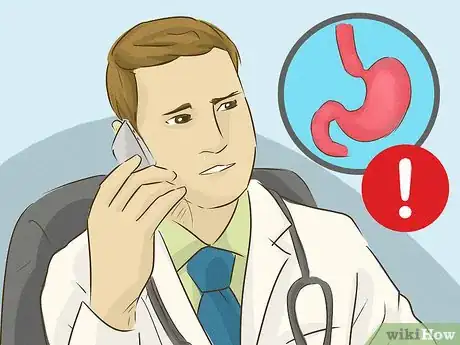
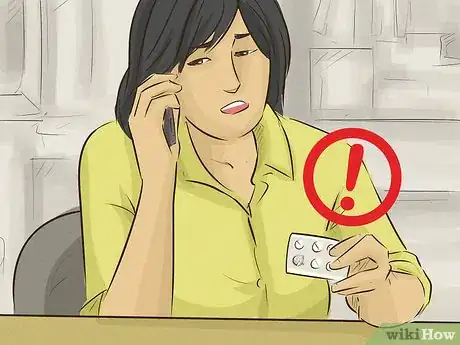
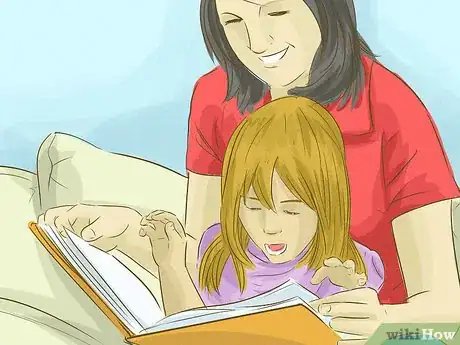

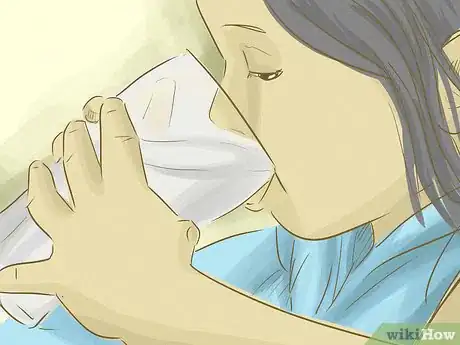
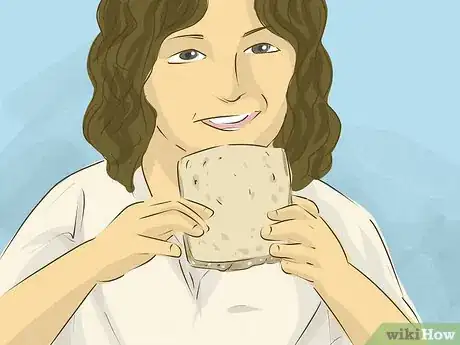
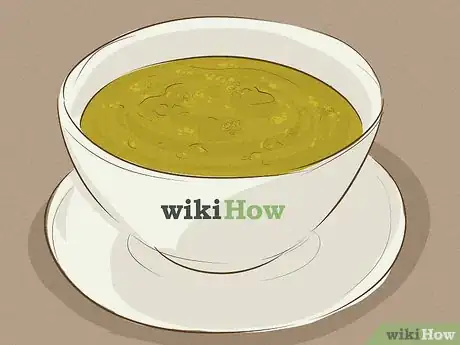
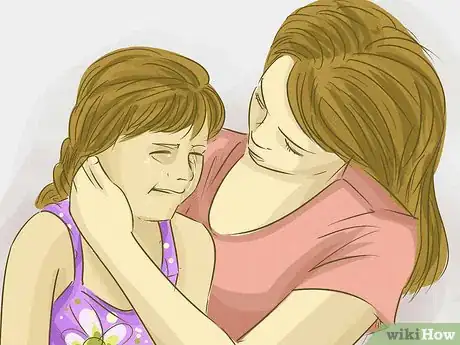
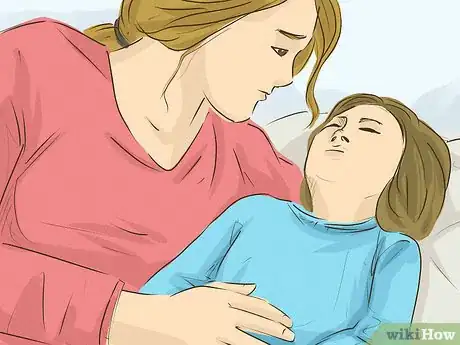
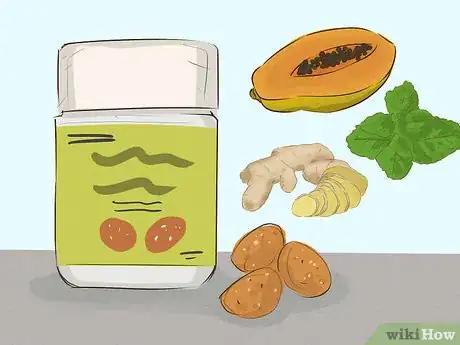
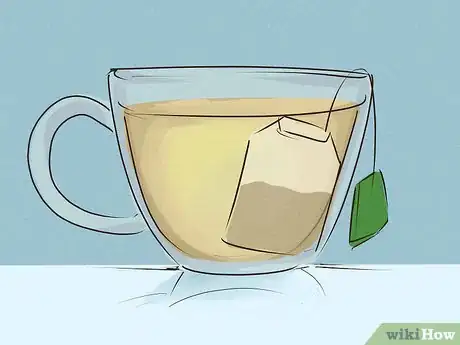
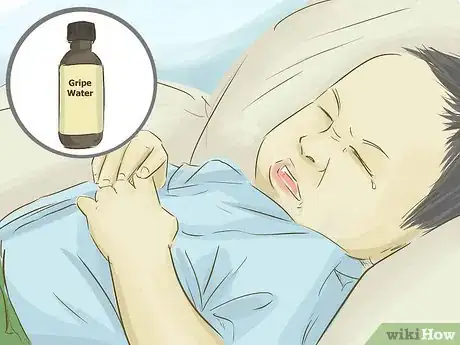
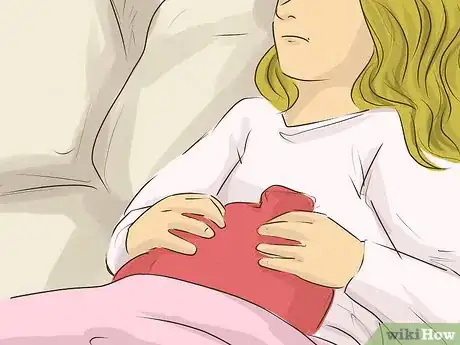
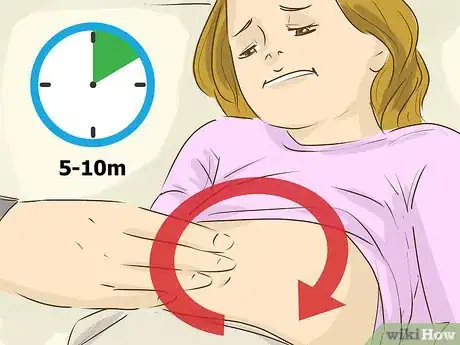
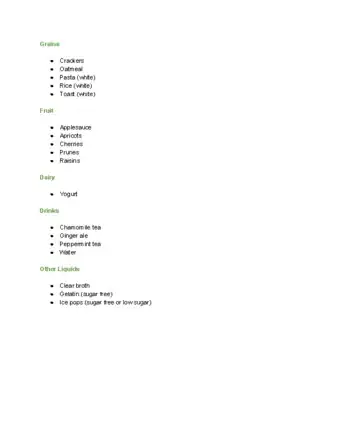



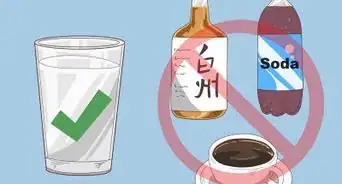





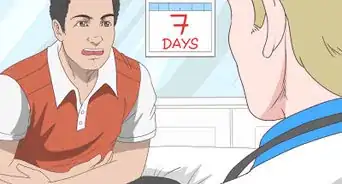
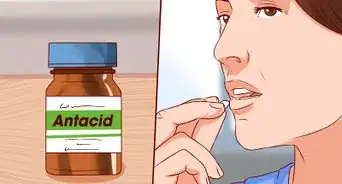

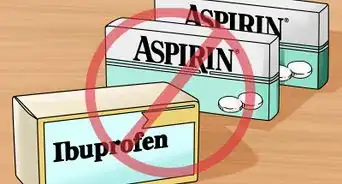















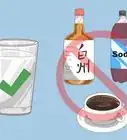




































Medical Disclaimer
The content of this article is not intended to be a substitute for professional medical advice, examination, diagnosis, or treatment. You should always contact your doctor or other qualified healthcare professional before starting, changing, or stopping any kind of health treatment.
Read More...